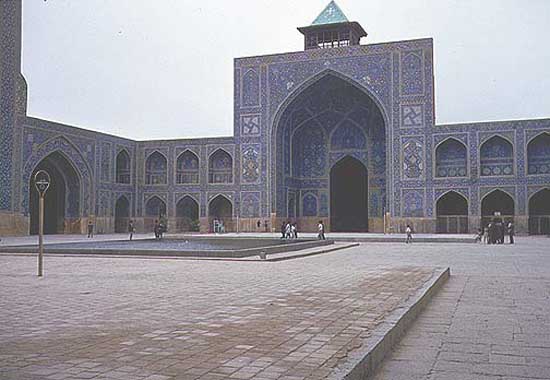
Peace Corps Volunteer Carole Nelson went through labor at a hospital in Iran surrounded by nurses in black chadors.
Other Peace Corps women had babies while away, creating extraordinary memories, like those of Carole Nelson, a Bay Area city planner, who went through labor at a hospital in Iran surrounded by nurses in black chadors.
As a woman who loves to travel, I'm always looking for ways to see the world. So I often think about joining the Peace Corps, which President Kennedy founded in 1961 and which sends about 3,500 volunteers on the trip of a lifetime every year. I even requested an application once. But when I searched my heart, I decided that I probably wouldn't take to living in a mud hut for two years. Moreover, I saw joining not as a chance to help those less fortunate but as an escape from discontent.
Susana Herrera, the author of "Mango Elephants in the Sun" (Shambhala, $22.50), a memoir about serving as a Peace Corps volunteer in Cameroon from 1992 to 1994, left for West Africa when she was 22, shortly after a traumatic divorce. "I was running," Herrera recalls, "and unprepared to deal with things like scorpions in the latrine."
But gradually, her problems receded as she learned to eat fried termites, kill snakes with a machete and understand the schoolchildren she taught. Better still, she learned to love the strong, brave, capable woman she was starting to become as a Peace Corps volunteer.
The Peace Corps experience has transformed the lives of many women, which is what travel is all about. So maybe I was wrong to doubt myself. As Carol-Anne Bullis, who served in Morocco and later as a Peace Corps recruiter in L.A., notes, self-interested motives, like the desire to travel and shake up your life, can be valid. But she also adds that candidates should have other reasons for applying, such as a commitment to service and an interest in foreign cultures.
Requirements include a bachelor's degree or equivalent work experience, flexibility, adventurousness and cultural sensitivity, Bullis says. You must be at least 18 and in good health. There is no upper age limit, which allows older women to enter the Peace Corps when they are widowed or their children leave the nest. Ex-President Jimmy Carter's mother, Lillian, served in India at age 69. (She didn't live to see her great-grandson Jason take up the Peace Corps torch 30 years later.) Preb Stritter, a teacher from Vermont who joined when she was 57, came to respect the values of the impoverished villagers she lived and worked with in Nepal so much that she stayed on for two years after her assignment ended.
Ellen Elliott of San Francisco raised three children from 1964 to 1968 in Africa and India, where her husband, David, was a Peace Corps administrator. Twenty-five years later, when her kids were grown and Ellen and David were in their early 60s, both signed up for a Peace Corps hitch, this time in Poland.
Women like these say that the Peace Corps changed their lives. Carolyn Wylie of Riverside met her future husband when they both entered the Peace Corps as volunteers in 1962, married him on assignment in the Philippines and took her in-laws on the honeymoon because they had come from the U.S. for the ceremony and wanted to see the terraced rice paddies of the north. Other Peace Corps women had babies while away, creating extraordinary memories, like those of Carole Nelson, a Bay Area city planner, who went through labor at a hospital in Iran surrounded by nurses in black chadors.
Of course, most Peace Corps women emphasize that volunteering to work in the Third World is a far cry from traveling through France or Italy as a tourist. The conditions can be rough, and even if you're posted to a country you've longed to visit, you may well be stationed in a remote area, miles from attractions and amenities. Then, too, you're not just passing through. You make a two-year commitment to the people and place. But there are benefits that last longer and mean more than travel photographs and souvenirs.
Lots of women catch a chronic travel bug in the Peace Corps. Herrera, who teaches English to teenagers in Santa Cruz, says her stint in Africa made her sure she wanted to live abroad several more times. Others, like Gretchen Singer of Petaluma, visited parts of the world most people never see while traveling home from her Peace Corps post in India in 1968.
Muriel Steiger, a retired social worker in Ventura, says that the Peace Corps spoiled her. After leaving Belize, she wasn't happy traveling the way other people do. "I never wanted to take a trip with a group for just a week," she says. "What can you see in a week, after all?"
Best of all, women volunteers with children have marvels to report because many of their kids turn out to be special--teachers, anthropologists, midwives and international relations experts, people with a wide and ethnically varied circle of friends, proficiency in several languages and itchy feet of their own. Elliott says that her family's Peace Corps years "demonstrated to the children that living in a different place isn't something to be afraid of."
Somehow, the way social worker Steiger conducted her life made her daughter want to join up, so for her, the Peace Corps became a family affair.
Marla Caplan, a Baltimore-based psychologist who served in the Peace Corps from 1970 to 1972 in Ethiopia, says that her children, too, benefited from having parents who were volunteers. "I grew up in a protected little family," she recalls, "with little sense of belonging to the world at large. But my kids know that their community is the world. What happens matters." When her daughter married a Japanese linguist, wedding guests toasted with sake, not champagne.
What better effect could travel have? Maybe I'll join up yet.
